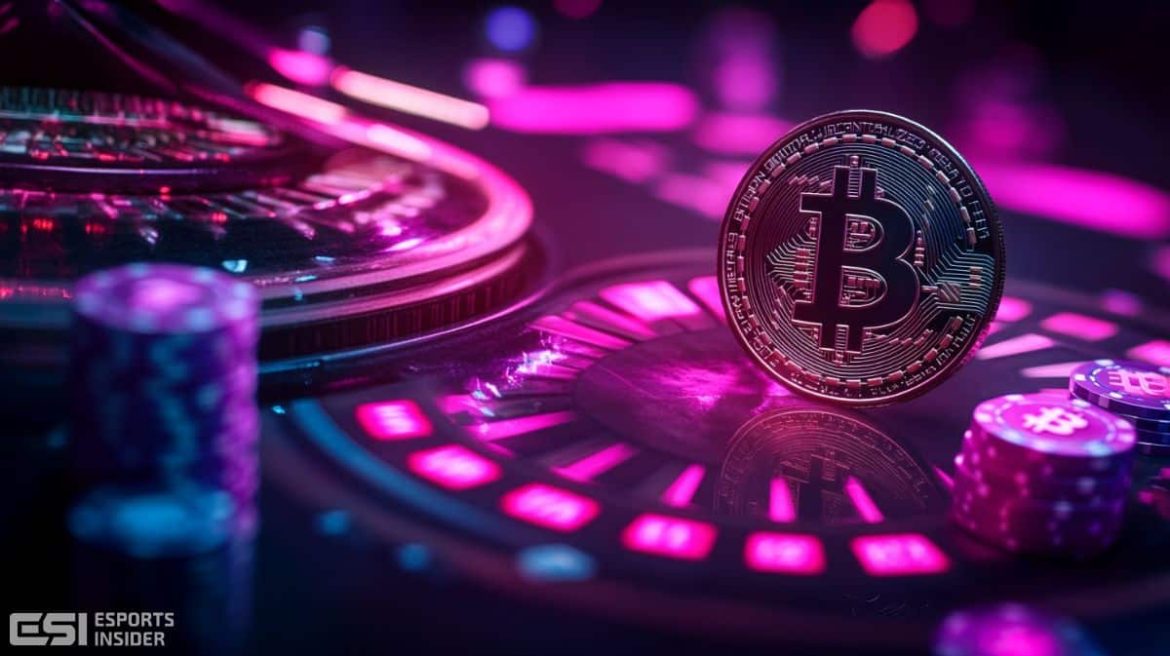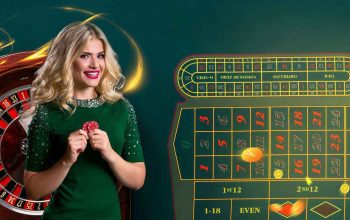The spinning wheel. The bouncing ball. The collective gasp of anticipation. Roulette has always been a game of elegant chance, a cornerstone of casinos for centuries. But honestly, the digital age is reshaping everything—even this classic. And the two biggest forces driving this change? Cryptocurrency and blockchain technology.
Let’s dive in. We’re not just talking about using Bitcoin to place a bet. This is a fundamental shift in how trust, transparency, and the very experience of the game are being reimagined. It’s moving the game from the velvet rope of the casino floor to the decentralized, global village of the internet.
Beyond the Chip: Why Crypto is Spinning the Wheel
So, why are players and platforms alike flocking to crypto roulette? It’s not just a fad. It solves some very real, very frustrating problems for online gamers.
Speed, Anonymity, and Global Play
Traditional online casinos can be a hassle. Bank transfers take days. Credit card deposits get flagged. Withdrawals? Forget about it—you might be waiting a week. Cryptocurrency flips the script. Deposits and withdrawals are near-instantaneous. You’re playing with your winnings almost as fast as the ball finds its pocket.
Then there’s privacy. Not everyone wants their bank statement shouting about their gaming habits. Crypto transactions offer a level of anonymity that traditional money simply can’t. Plus, it opens up the game to a global audience, bypassing restrictive regional banking laws. A player in Tokyo can easily play at a platform based in Curacao without any currency conversion nightmares.
Enhanced Security and Lower Costs
Here’s the deal: blockchain is inherently secure. By using cryptographic principles, it makes transactions incredibly difficult to hack or reverse fraudulently. This security benefits everyone. For players, it means their funds are safer. For operators, it drastically reduces fraud and the associated costs. These savings often get passed on to you in the form of lower house edges and better bonuses. It’s a win-win.
The Trust Machine: How Blockchain Makes Roulette Provably Fair
This is the real game-changer. The single biggest question any online gambler has is: “Is this game fair?” Traditional casinos use Random Number Generators (RNGs) certified by third parties. You just have to… well, trust them. Blockchain introduces a concept called provable fairness.
Think of it like a sealed envelope. Before a round even begins, the platform generates a secret seed number and a public seed number. You, the player, can also provide your own seed. These are combined to determine the outcome of the spin—where that ball will land. The crucial part? The secret seed is hashed (scrambled into a unique code) and published before the bet is placed.
After the spin, the platform reveals the original secret seed. Now, you can verify that the hashed code matches and that the outcome was indeed calculated from those specific seeds. It’s like being able to count the cards after a blackjack hand to prove the deck wasn’t stacked. This transparency builds a level of trust that was previously impossible.
A New Spin on the Game: NFTs and the Metaverse
The innovation doesn’t stop at payments and fairness. The convergence of crypto and roulette is getting even more creative.
NFTs as Unique Bets and Collectibles
Imagine not just winning money, but winning a unique digital collectible. Some platforms are experimenting with Non-Fungible Tokens (NFTs) tied to specific outcomes. Landing on a specific number could mint a rare NFT for you—a digital trophy for that perfect bet. These assets can be held, traded, or sold on open marketplaces, adding a whole new layer of value to the game beyond the immediate payout.
The Metaverse Casino Floor
This is where it gets really sci-fi. With the rise of the metaverse and virtual reality, we’re seeing the emergence of fully immersive crypto casinos. You can put on a VR headset, walk into a stunning digital casino, sit down at a roulette table with other players from around the world, and place your bets using cryptocurrency from your integrated wallet. It’s the social and sensory experience of a physical casino, combined with the benefits and transparency of blockchain technology.
Not All That Glitters: Challenges and Considerations
Okay, it’s not all perfect. This new frontier comes with its own set of challenges. The volatility of cryptocurrency prices is a big one. The Bitcoin you deposit could be worth significantly more or less by the time you cash out—adding an extra layer of risk to the game itself.
Regulation is still a wild west. The legal landscape for crypto gambling is fuzzy and varies wildly by jurisdiction. Players need to be extra diligent about choosing licensed and reputable platforms. And, you know, the inherent complexity of blockchain can be a barrier for less tech-savvy users who just want to play a simple game of roulette.
The Future is Decentralized
The fusion of cryptocurrency and blockchain with roulette is more than a novelty. It’s a fundamental evolution. It’s addressing long-standing issues of trust, speed, and accessibility head-on. The core of the game—the thrill of the spin—remains untouched. But the infrastructure around it is being completely rebuilt to be more transparent, efficient, and secure.
We’re moving towards a future where you won’t have to just hope the game is fair. You’ll be able to verify it yourself. The house won’t be a mysterious entity; its rules will be written in immutable code for all to see. That’s a powerful shift. It returns a sense of agency and confidence to the player, making the timeless game of chance feel strangely… more honest.




